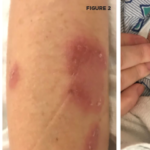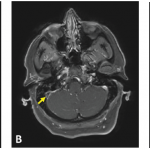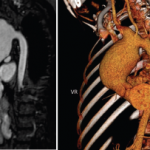“Apart from being a very caring physician and an expert on osteoporosis, Paul was also a master of organized skepticism,” Dr. Yazici notes.
Dr. Saville role-modeled the practice of questioning the conventional wisdom, and this had a big impact on Dr. Yazici.
“I was simply overjoyed when my first-ever dissenting letter to the editor appeared in Annals of Internal Medicine, followed shortly thereafter by another in The New England Journal of Medicine during my fellowship.”
Dr. Saville was also convinced that primary osteoarthritis was not a generalized disease, meaning that a patient could have Heberden’s or Bouchard’s nodes of the fingers even in the absence of osteoarthritis of the knees or hips. “He kept discussing with me how we could verify/falsify this hypothesis,” Dr. Yazici recalls. “With his guidance and encouragement, I prepared a protocol for a clinical study with a quite straightforward design. He sent me to his previous working place at the mecca of rheumatology, the Hospital for Special Surgery in New York City, and I was there for three months to conduct the study. A year-and-a-half later, the fruit of our labors appeared in JAMA, very much confirming his hypothesis.”
It was upon his return to Turkey that Dr. Yazici met another key role model in Asuman U. Muftuoglu, MD, whom he describes as the other clinician-scientist who was most influential in his academic career.
Dr. Muftuoglu had trained in Boston under the tutelage of William Dameshek, MD, arguably the preeminent American clinical hematologist of the time. Dr. Muftuoglu began to work at Cerrahpasa Hospital at the University of Istanbul, where Dr. Yazici had returned to work following his years in the U.S.
“It was with her guidance, clinical research expertise, scientific discipline, personal support and encouragement that I started the second academic rheumatology unit in Turkey and the dedicated, multidisciplinary Behçet syndrome outpatient clinic, the first of its kind,” says Dr. Yazici. “The weekly clinic, which had started in her office, is still very much active, with close to 15,000 registered patients.”
Honors
The awards and accolades that Dr. Yazici has garnered over the years are many and include the TUBITAK Science Award (the highest scientific award in Turkey). He served as president of the Turkish Society of Internal Medicine and the Turkish Society for Research and Education in Rheumatology. He received the Meritorious Service Award from the European Alliance of Associations for Rheumatology (EULAR), and was named a Master of the ACR.


